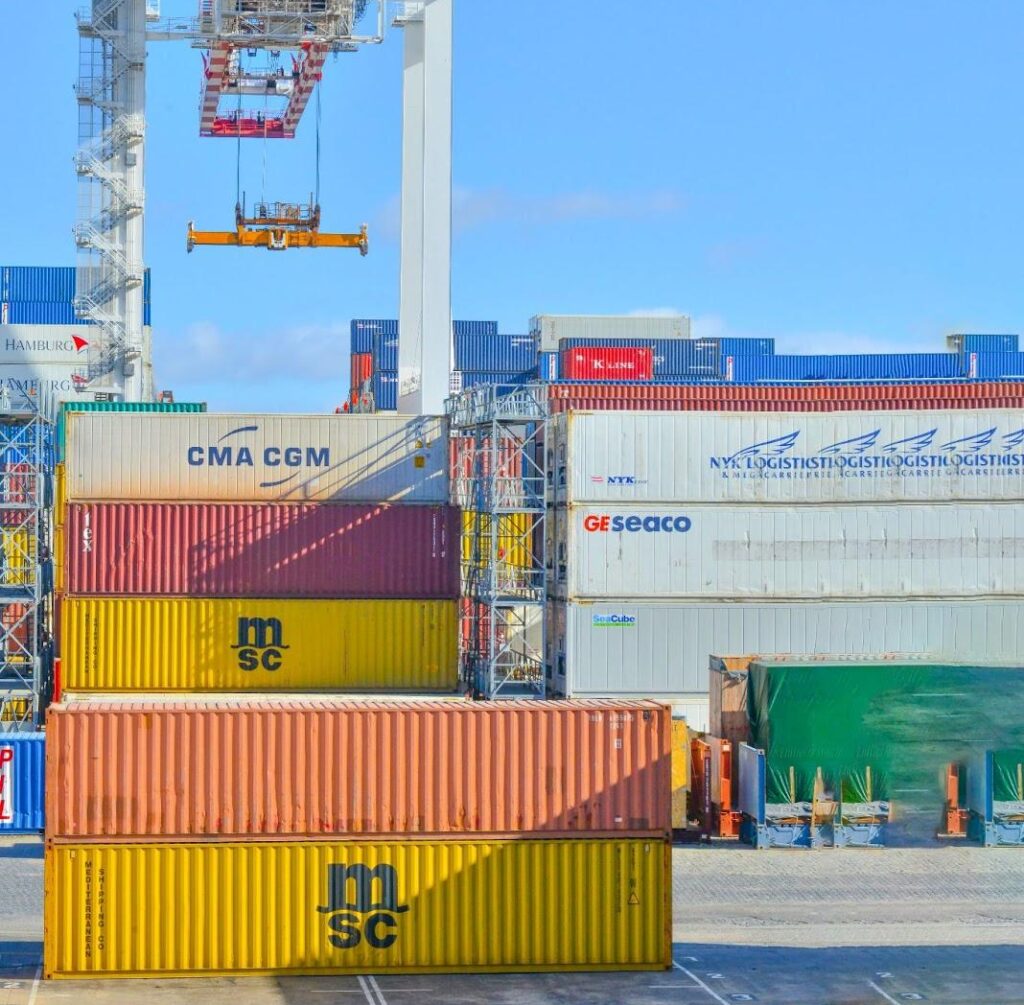Key Challenges in Logistics Management: Strategies to Overcome Them

In today’s competitive global marketplace, logistics management difficulties are ever-changing, with firms negotiating a maze of supply chain complexities, rising transportation costs, and shifting customer expectations.
With logistics at the heart of business operations, its significance cannot be overstated.
This article dives deep into the challenges in logistics management, showing how modern technology, the supply chain, and various logistics processes come into play, and presenting solutions for logistics companies striving for success.
Logistics Industry Key Challenges Identified
The logistics industry confronts many challenges, intricately tied to the dynamics of technology and the supply chain.
From managing complex systems to streamlining operations, understanding these challenges becomes crucial for logistics managers aiming for a proactive supply chain network.
The Role of Customer Service and Its Significance
In the logistics sector, customer service transcends the mere act of delivering goods. It is all about exceeding client expectations, providing timely and correct documentation, and improving the overall customer experience.
Poor customer service can lead to diminished client loyalty, affecting the success of a logistics organization. Improved customer service, on the other hand, can develop trust, ensuring repeat business and distinguishing the company in a crowded market.
Managing Data and Technology
With the spread of contemporary technology and interconnected electronic networks, managing massive volumes of data has become critical.
Logistics firms that capitalize on the promise of logistics software, cloud services, and smart technologies are better positioned to predict customer demand, manage logistics operations, and effectively solve any supply chain crisis.
However, those lagging in technological adoption face inefficiencies, errors, and a competitive disadvantage.
Capping Transportation Costs
Transportation expenses, which are affected by factors such as fuel prices and driver shortages, can have a substantial impact on a logistics organization’s budget. Every logistics company that wants to be successful while delivering on schedule must have effective transportation management.
Companies may keep these costs under control by using steps like route optimization, leveraging third-party logistics partnerships, and embracing environmentally friendly cars.
Understanding and Incorporating Compliance Laws and Standards
Navigating the tangle of government laws, from federal, state, and local obligations to specialized environmental regulations, is essential in logistics management. Noncompliance can lead to significant fines, operational issues, and reputational damage.
As a result, logistics managers must stay current on the regulatory landscape to ensure that their logistical methods correspond to local and global standards. Working with local governments, staying up to speed on industry standards, and investing in training can help logistics companies stay compliant.
Stay tuned as we go deeper into these concerns and offer concrete suggestions for logistics professionals aspiring for excellence.
Streamlining All Aspects Within Supply Chain Logistics
Supply chain logistics, encompassing the entire flow from procurement to product delivery, is the backbone of many businesses. Streamlining all its aspects ensures a seamless and efficient transfer of goods and services.
This involves optimizing each link in the supply chain, from suppliers and partners to transportation management. When supply chain logistics is streamlined, it can drastically reduce operational costs, improve supply chain visibility, and ensure timely delivery, greatly benefiting the logistics sector.
However, poorly executed can lead to bottlenecks, delays, and missed opportunities, creating challenges for logistics companies aiming for a proactive supply chain network.
A Logistics Process to Harness Challenges
Every logistical obstacle, from rising gasoline prices to inefficient human resource departments, represents a potential for growth and progress.
To address these logistics management problems, logistics organizations must establish and operate a solid logistics process. This entails evaluating current corporate operations, finding inefficiencies, and implementing solutions to close these gaps.
A well-defined procedure, backed by contemporary technology such as logistics software, may transform problems into stepping stones, allowing logistics companies to stay agile and responsive in a volatile environment.
Meeting Workforce Efficacy
The efficiency of a logistics firm is often as good as its workforce. The human factor is crucial for the success of logistics operations. Whether it’s drivers facing shortages, warehouse managers making mistakes, or any other role, the people involved can make or break the process.
Businesses must invest in training, handle job assignments properly, deal with high turnover rates, and develop a culture of continual improvement to maintain staff efficiency. A well-trained and engaged team can reduce mistakes, increase customer happiness, and drive growth.
A badly trained or disengaged crew, on the other hand, might lead to operational inefficiencies, posing challenges for logistics managers striving for excellence.
Utilizing Logistics Strategies

By being strategic in every logistical function, from sourcing to delivery, businesses can achieve benefits such as cost savings, improved customer service, and increased supply chain visibility.
Strategies that leverage modern technology to optimize operations and prioritize collaboration among logistics partners are also invaluable in addressing the logistics industry’s challenges, such as rising transportation costs, complex systems, and fluctuating customer demand.
Furthermore, as the logistics sector becomes more competitive nowadays, there’s an emphasis on building adaptive and resilient logistics networks. Tailoring strategies according to the unique needs of a business, regularly reviewing key performance indicators, and fostering partnerships with suppliers, transportation companies, and even local governments can give logistics businesses an edge.
Incorporating such versatile strategies ensures that even amidst challenges like supply chain crises or unexpected spikes in e-commerce sales, businesses can maintain a high standard of service quality.
Inbound Logistics
Inbound logistics primarily focuses on transporting, storing, and delivering goods coming into a business. This entails managing suppliers and partners, ensuring timely and accurate documentation, and optimizing storage strategies.
Outbound Logistics
Outbound logistics pertains to storing and transporting end products ready for distribution to consumers or retailers. It plays a pivotal role in ensuring customer satisfaction through timely delivery service.
Reverse Logistics
Reverse logistics involves managing goods from their typical final destination to the manufacturer, mainly for returns, repairs, or recycling. It’s a crucial component for maintaining brand reputation and customer trust.
Distribution Logistics
Distribution logistics emphasizes the efficient delivery of finished products to consumers. It includes warehousing, order processing, and transportation management, ensuring products reach their intended market promptly.
Third-Party Logistics
Third-party logistics (3PL) providers are external firms that handle specific logistics operations, like transportation or warehousing, on behalf of another company. They allow businesses to outsource logistical functions, achieving scalability and flexibility.
Fourth-Party Logistics
Fourth-party logistics (4PL) providers manage and oversee a company’s supply chain, including its relationships with 3PLs. They act as a single interface between a business and its multiple logistics partners, streamlining the whole process.
FAQs
Explore some frequently asked questions to gain further insights into the challenges and solutions within logistics.
What are the challenges in logistics management?
Logistics management faces hurdles like rising transportation costs, regulatory compliance, technology integration, and fluctuating customer demand.
What is the biggest challenge in logistics?
The largest challenge in logistics is maintaining supply chain visibility and efficiency amidst fluctuating demands, global challenges, and technological disruptions.
How can logistics management challenges be overcome?
Overcoming logistics challenges involves streamlining operations, adopting modern technology, building resilient supply chains, and fostering collaboration among logistics partners.
What are logistical problems?
Logistical problems encompass issues related to transportation, warehousing, data management, compliance, and coordination among various supply chain members.
Challenges Within the Logistics Industry
Businesses in the dynamic logistics industry face several obstacles, ranging from growing transportation costs to sophisticated supply chain management.
Utilizing technology and forming strategic connections become increasingly important as they strive to meet client expectations. With the right strategy and adaptation, the logistics sector can turn these challenges into opportunities for growth.
Understanding these logistics management difficulties and adapting proactively will be important for future success in a rapidly changing global economy.
